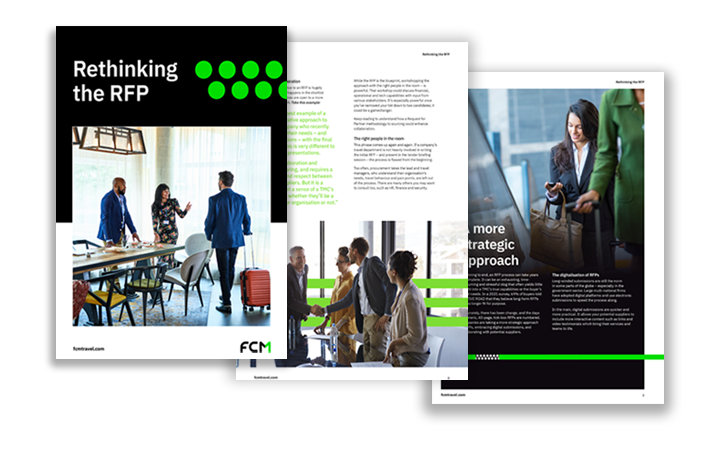Here’s your complete guide on corporate event management

The pressure of hosting corporate events is real. To achieve the desired results and make your event a smashing hit, every element- planning to post-event analysis- should be on point. The good news is you can make your event memorable by managing the nitty-gritty. In this guide, we’ll walk you through nuances of successful corporate event management and how to make your event talk of the corporate world.
What is corporate event management?
Corporate event management is a blend of art and science. In simple words, it is organising any type of corporate event, virtual events or in-person events. It starts with understanding the objective, planning, arranging all the elements such as venues, catering, logistics; and executing with minimal glitches.
The design and concept of corporate event planning is like an art. The science part kicks in when you meet the expectations of the analytical mind, looking for tangible/non-tangible results. Your corporate events should have the power to bring two worlds together, where logic meets magic.
Companies host corporate events to network, share information, and engage employees. These events play a strategic role in business development and growth. They are also important to engage and energise employees, reward them for achievements, and celebrate company’s wins. With so much at stake, a robust corporate event management can set up the event for success. Else, it can become a ticking time bomb that can go in unpredictable ways.

Download your guide to rethinking corporate travel RFPs with chapters including:
- The now: a more strategic approach
- Common pitfalls in travel RFPs
- Ten steps to a rock-solid RFP
- Advice from FCM’s team
- Request for Partner: a collaborative alternative
From closed door meetings to team building events, corporate events can be of different types. Let’s have a look:
1. Conferences and seminars
Such events can be large gatherings to exchange an idea or talk about industry trends. Business conferences or seminars can go on for multiple days, and usually have keynote speakers, panel discussions, and workshops, where board members, stakeholders share ideas and information with participants and industry leaders.
2. Networking events
These events are held to strengthen your position in the industry, meet new clients, catch up with existing customers, and make business connections.
3. Incentive trips
These are large-scale events hosted to reward and recognise top performing employees of a company. Such events are critical for team building, celebrate team spirit, and incentivise individuals.
4. Team building retreats
Such events are for employee motivation. Retreats build camaraderie among team members and are open to all the employees. Usually, retreats are a mix of brainstorming sessions and engagement activities where employees take a break after meeting.
5. Product launches
These corporate events are held to inform customers about new product offerings. For instance, Apple does a yearly event to launch latest edition of iPhones with fanfare.
6. Hackathons
These events are hosted by companies who want to look for loopholes in their digital presence to avoid cyber-attacks.
7. Workshops and training events
These sessions are held to upskill employees. Usually, team leaders give presentations to a wider group to communicate changes, new development, etc. They can either be in-person or hybrid as well.
Meeting and events with FCM
Let us handle your next important meeting. Our worldwide team of dedicated professionals is focused on bringing outstanding value to your meetings and events.
1. Clearly state your objectives
Define the purpose of your event. Whether you are holding trade shows, or hosting networking or knowledge-sharing events, a successful business event starts with spelling out the objectives. Event objectives can then enable you to define and understand your audience, its outcome, how will it be measured, and much more.
2. Set a budget
Event budget is always a top priority discussion. Set a realistic budget that covers all aspects of the event, such as venue, catering, transportation, marketing materials, and entertainment. Event planners should allocate funds wisely and leave some room for unexpected expenses.
3. Explore venue options
A right venue sets the tone of your event, it has to be just right also in terms of location, size, and necessary amenities. The size of the venue can depend on the event type, target audience, number of attendees, etc. Pro tip: It is always advisable to book venues in advance to avoid budget leakages.
4. Logistics planning
From backdrops at the event, video shooting equipment to seating arrangements, logistics is the backbone of your event. An effective event planner always creates a comprehensive checklist of all the elements while organising an event. Event planners also show exceptional problem solving skills, in case anything goes wrong.
5. Engage your audience
Audience engagement can take your event one-notch higher. Whether it is through polls, quizzes, or activities, if your audience feels seen and heard, you have nailed the event. For polls, there are many mobile apps available that can be used during corporate events.
Finding the perfect event partners can be a game-changer. You can start on the right foot by creating a list of things you expect from an event planner such as number of corporate events they have done, what kind of companies they have partnered with, if they use an event management software, etc. Look for out-of-the-box ideas and innovation. A good corporate event planner is the one who has a proven track record of knocking it out of the park in event planning, logistics, marketing, and beyond.

Global Quarterly Events Guide
Download the guide covering events from July through September 2024.
An end-to-end event management concludes with post-event analysis. You have to assess the return on investment (ROI) and collect feedback to set a benchmark for success and analysis the hits and misses. The feedback can be collected through surveys, talking to attendees. It can be also assessed through deal closures in case of networking and sales events.
How event planners can measure the success of a corporate event
Measuring success of an event goes beyond number of attendees. In non-tangible terms, it is about creating a memorable experience for your participants. For tangible results, you can look at various metrics to evaluate the performance of the event such as lead generation and conversion metrics, social media metrics, and benchmarking. Many business owners also look at NPS, or the net promoter score.
Manage the dynamic corporate event management landscape
When you bring all the above elements together, you'll master the winning formula for corporate event management. Also, with FCM Meetings & Events team on your side, you'll feel like you've got the A-team backing you! Contact us for your next corporate event, whether it is product launches, training sessions, shareholder meetings, or trade shows.
Effective corporate event management can make your event a smashing hit and help you achieve desired goals. In this guide, we’ll walk you through nuances of successful corporate event management and how you can make your event talk of the corporate world.
The alternative way of corporate event management
Corporate travel encompasses much more than just booking flights. At FCM Travel, we provide a wide range of corporate travel services through our expert teams and cutting-edge technology.
Our comprehensive approach to business travel management offers you complete control over your corporate travel program, delivering value through savings, efficiency, and enhanced productivity.
Looking for a new travel partner? Let's discuss how we can elevate your corporate travel experience.
